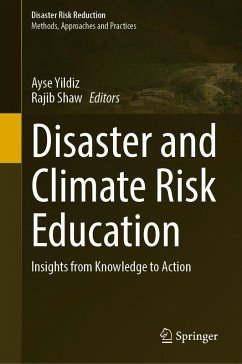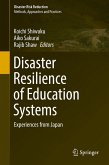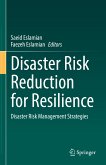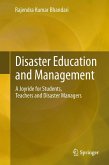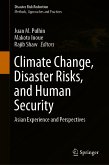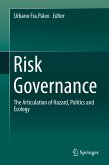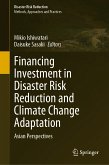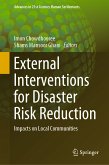Following international tragedies like the Turkey-Syria earthquake of 2023, as well as the ever-changing difficulties posed by climate change, DCRE has to be given priority immediately. Our book proposes a comprehensive strategy that includes governance, capacity building, education in schools and the community, and technology integration. Our insights, analyses, and practical policy suggestions are based on multidisciplinary research and worldwide case studies, with the goal of strengthening resilience and cultivating a generation committed to sustainability. This book provides a comprehensive exploration of DCRE. It aims to prepare individuals and communities to face the challenges of a changing world head-on by improving knowledge and promoting preparedness.
Dieser Download kann aus rechtlichen Gründen nur mit Rechnungsadresse in A, B, BG, CY, CZ, D, DK, EW, E, FIN, F, GR, HR, H, IRL, I, LT, L, LR, M, NL, PL, P, R, S, SLO, SK ausgeliefert werden.

